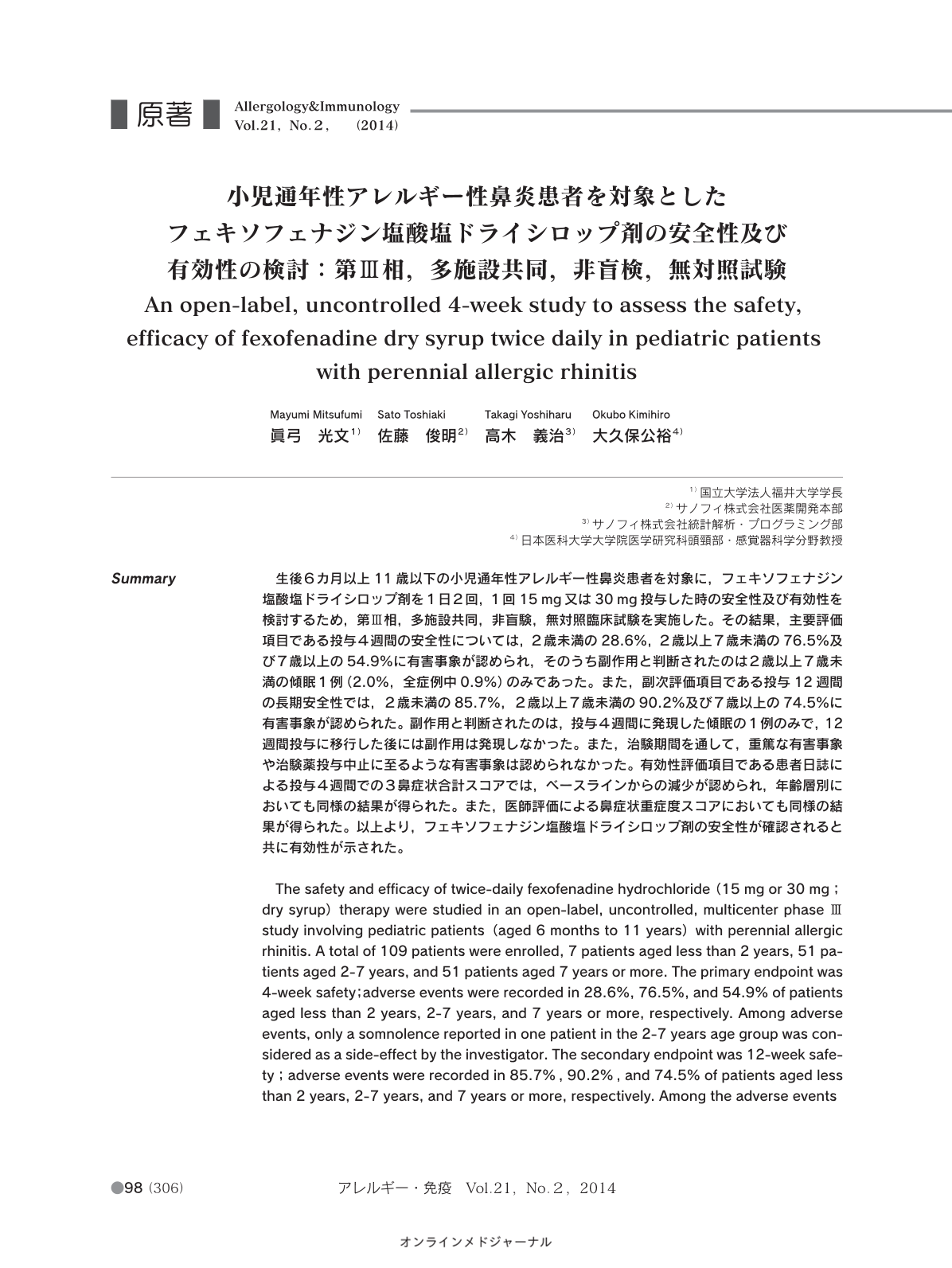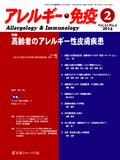Japanese
English
- 有料閲覧
- Abstract 文献概要
- 1ページ目 Look Inside
- 参考文献 Reference
- サイト内被引用 Cited by
生後6カ月以上11歳以下の小児通年性アレルギー性鼻炎患者を対象に,フェキソフェナジン塩酸塩ドライシロップ剤を1日2回,1回15 mg又は30 mg投与した時の安全性及び有効性を検討するため,第 III 相,多施設共同,非盲験,無対照臨床試験を実施した。その結果,主要評価項目である投与4週間の安全性については,2歳未満の28.6%,2歳以上7歳未満の76.5%及び7歳以上の54.9%に有害事象が認められ,そのうち副作用と判断されたのは2歳以上7歳未満の傾眠1例(2.0%,全症例中0.9%)のみであった。また,副次評価項目である投与12週間の長期安全性では,2歳未満の85.7%,2歳以上7歳未満の90.2%及び7歳以上の74.5%に有害事象が認められた。副作用と判断されたのは,投与4週間に発現した傾眠の1例のみで,12週間投与に移行した後には副作用は発現しなかった。また,治験期間を通して,重篤な有害事象や治験薬投与中止に至るような有害事象は認められなかった。有効性評価項目である患者日誌による投与4週間での3鼻症状合計スコアでは,ベースラインからの減少が認められ,年齢層別においても同様の結果が得られた。また,医師評価による鼻症状重症度スコアにおいても同様の結果が得られた。以上より,フェキソフェナジン塩酸塩ドライシロップ剤の安全性が確認されると共に有効性が示された。
The safety and efficacy of twice-daily fexofenadine hydrochloride(15 mg or 30 mg;dry syrup)therapy were studied in an open-label, uncontrolled, multicenter phase III study involving pediatric patients(aged 6 months to 11 years)with perennial allergic rhinitis. A total of 109 patients were enrolled, 7 patients aged less than 2 years, 51 patients aged 2-7 years, and 51 patients aged 7 years or more. The primary endpoint was 4-week safety;adverse events were recorded in 28.6%, 76.5%, and 54.9% of patients aged less than 2 years, 2-7 years, and 7 years or more, respectively. Among adverse events, only a somnolence reported in one patient in the 2-7 years age group was considered as a side-effect by the investigator. The secondary endpoint was 12-week safety;adverse events were recorded in 85.7%, 90.2%, and 74.5% of patients aged less than 2 years, 2-7 years, and 7 years or more, respectively. Among the adverse events recorded, only the previously mentioned event of somnolence was considered a side effect. No other side effects were observed during the extension period from Week 4 to Week 12. During the study, no serious adverse event or adverse event leading to treatment discontinuation was recorded. Regarding the efficacy endpoint, fexofenadine dry syrup decreased the total nasal symptoms score of Sneezing, Rhinorrhea and Nasal congestion, relative to the baseline, as assessed based on the records in the patient diary. The mean decrease in the total nasal symptoms score was -1.78. Similar reductions in the total nasal symptoms score were shown in each age group. The total nasal symptom severity scores assessed by investigator showed similar reductions. These results confirm the safety and efficacy of fexofenadine dry syrup in pediatric patients with perennial allergic rhinitis.



